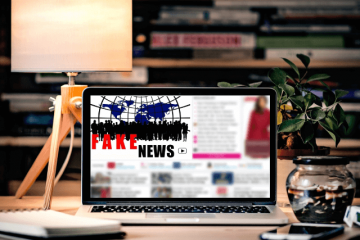Burkina Faso is rich in natural resources but lacks infrastructure. The country needs more investment to improve the quality of life of its citizens. But it’s getting there with a freshly new democracy.
In the past, Burkina Faso had never held free and fair elections. The country was under the control of a dictator. When he tried to change the constitution to allow himself to stay in power, the people rose up and forced him out.
Recently, the former General Dédéréis was charged with complicity in the assassination of former president Thomas Sankara. He is accused of taking part in the killing of Sankara in 1987. Trials must be fair and open, and bringing the individuals who held Burkino Faso’s democracy hostage to justice is an important first step towards building a new foundation for democratic freedom.
Terrorism and Democracy in Burkina Faso
In the past years, Burkina Faso has faced many challenges. Terrorist attacks have increased, and Burkina Fasan politicians have had to deal with the consequences of terrorism. Burkina Faso must continue to create a strong democracy if it wants to survive. If it fails, the terrorists will grow stronger.
In recent years, thousands have died in jihadist attacks across Africa. More than three million people are in urgent need of humanitarian aid, while children are being forced out of school. Jihadist groups have taken control of a large portion of northeast Burkina Faso.
Insecurity among Burkinabè citizens is growing as the president mobilizes a militia force to fight off insurgents. Ethnic discrimination is increasing as the president’s policies create more tension among different ethnic groups.
The Burkinabe government has slipped back into old patterns. Instead of reducing executive power, they are delaying a popular referendum on term limits. Their hesitation to honor the promise to remove term limits from the Constitution is concerning. They also passed a new criminal code that may be used to limit free speech.
The Burkinabé government should work toward national unity by involving northern people and lower-class groups in decision-making. Because marginalization of these groups aids insurgent groups, the government should seek to include them in the process. The government should also encourage negotiations with insurgents, but it should not allow militant Islamism to take hold. Military reform, negotiations, and a coalition government are needed to achieve national unity. National unity is necessary to address the security threats posed by insurgents.
In the United States, the Constitution is the supreme law of the land. There are many laws that go beyond what the constitution says about how things should be done. These laws are called “statutory” or “common law.” Sometimes, there are even other types of laws, such as international treaties or executive orders, that are made by the president of the United States. All of these laws are valid and enforceable within the boundaries of the United States.
Burkina Faso – Where democracy has always been at risk from “coups d’etat”
Democracy has always been at risk in places where economic growth and political stability were weak. This was true for much of Europe during the 19th century. Germany had a strong economy, but lacked political stability and suffered through two revolutions. France, Italy, Belgium, and Austria all experienced unrest throughout the 20th century.
And in Burkina Faso, like many other African states, the combination of high levels of poverty, low levels of education, and weak governance make democracy vulnerable.
But despite this history of instability, some countries in sub-Saharan Africa have managed to establish successful democracies. Democratic transitions in Kenya and Nigeria, for example, have helped lift millions of Africans out of poverty. But Burkina Faso has struggled.



0 Comments